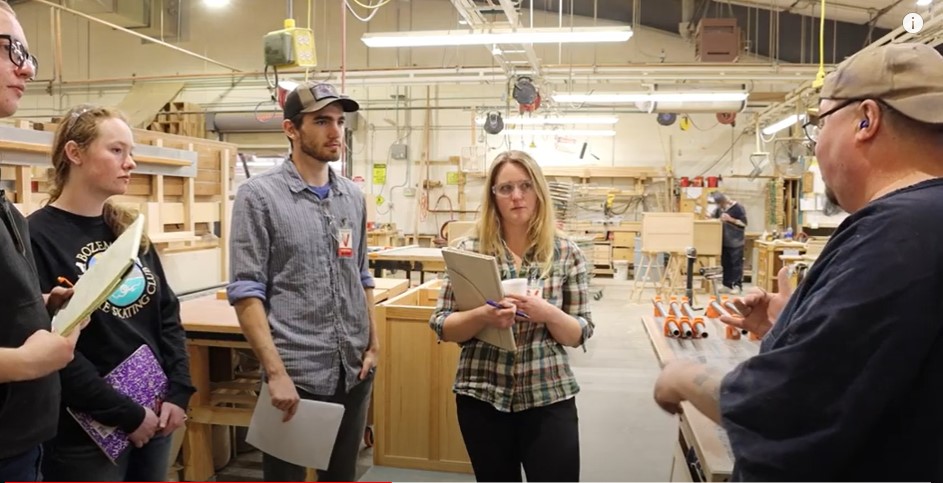Montana Department of Corrections teams up with MSU students to improve prison industries program operations

In order to graduate, students at the Montana State University Norm Asbjornson College of Engineering must complete a senior capstone project. One of the project options is working with Montana Correctional Enterprises (MCE), an inmate training program with the Montana Department of Corrections (DOC), to improve program operations.
The partnership between MCE and MSU began in 2019 when Industries Director Joel Miller reached out to the college. After the MSU professors took a facility tour and had several meetings, MCE hosted its first capstone group of students in 2019. The program was put on hold in 2020 due to COVID-19, but a second group of students is back this spring.
Students can select from various projects with different businesses and rank their top three choices. The final teams then tackle real-life design problems posed by their assigned sponsors which include businesses, MSU faculty, state agencies, and more. Students work with the sponsor to determine project details and specifications, then do research, consider alternatives, and perform a thorough analysis before creating a final product or recommendation to deliver to the sponsor.
This year, the students are working to help reduce issues with waste and rework at MCE. They are also considering a new layout and production plan for the furniture shop. The students will identify where materials and time are getting lost, along with pinpoint where defects in products originate.
Dr. William Schell, associate professor, said all capstone projects provide students with real-world experience to help prepare them for post-college careers.
“What makes our partnership with MCE unique is that our students also get the chance to be teachers,” Schell said. “By helping inmates learn basic industrial and management systems and engineering principles, our students not only learn the principles better themselves, they support the development of the employee base at MCE.”
Miller said the collaboration with the university has benefited MCE and the inmate workers.
“My hope was to provide an opportunity for inmates to work on their soft skills, teamwork, and critical thinking, which has happened,” Miller said. “I also hoped this partnership would help break down the stigmas that people might have about inmates. For the students, it might be the first time they have met someone who is in prison.”
MSU senior Josh Seidler said he picked the MCE project as one of his top capstone projects for two reasons. The first was that the MCE issues sounded pertinent to what they had learned in class. The second was his admiration of the MCE mission.
“These guys really take their jobs seriously, and they’re really skilled,” he said. “I think going and seeing some of the custom stuff they do - they’re artists really - and it’s really cool getting to see that. They’re really committed to producing good work and satisfying their customers. On top of that, all the inmates have been really nice, pleasant, and eager to work with us.”
While the inmate workers hope the students get a passing grade, they hope students gain more from this experience.
“I hope they get a better mindset of the possibilities that our population can bring,” said Billy LeMond, an inmate worker with MCE. “And the work level that comes out of here - they get a better understanding of that. Then they can share that with prospective employers or just the public in general.”